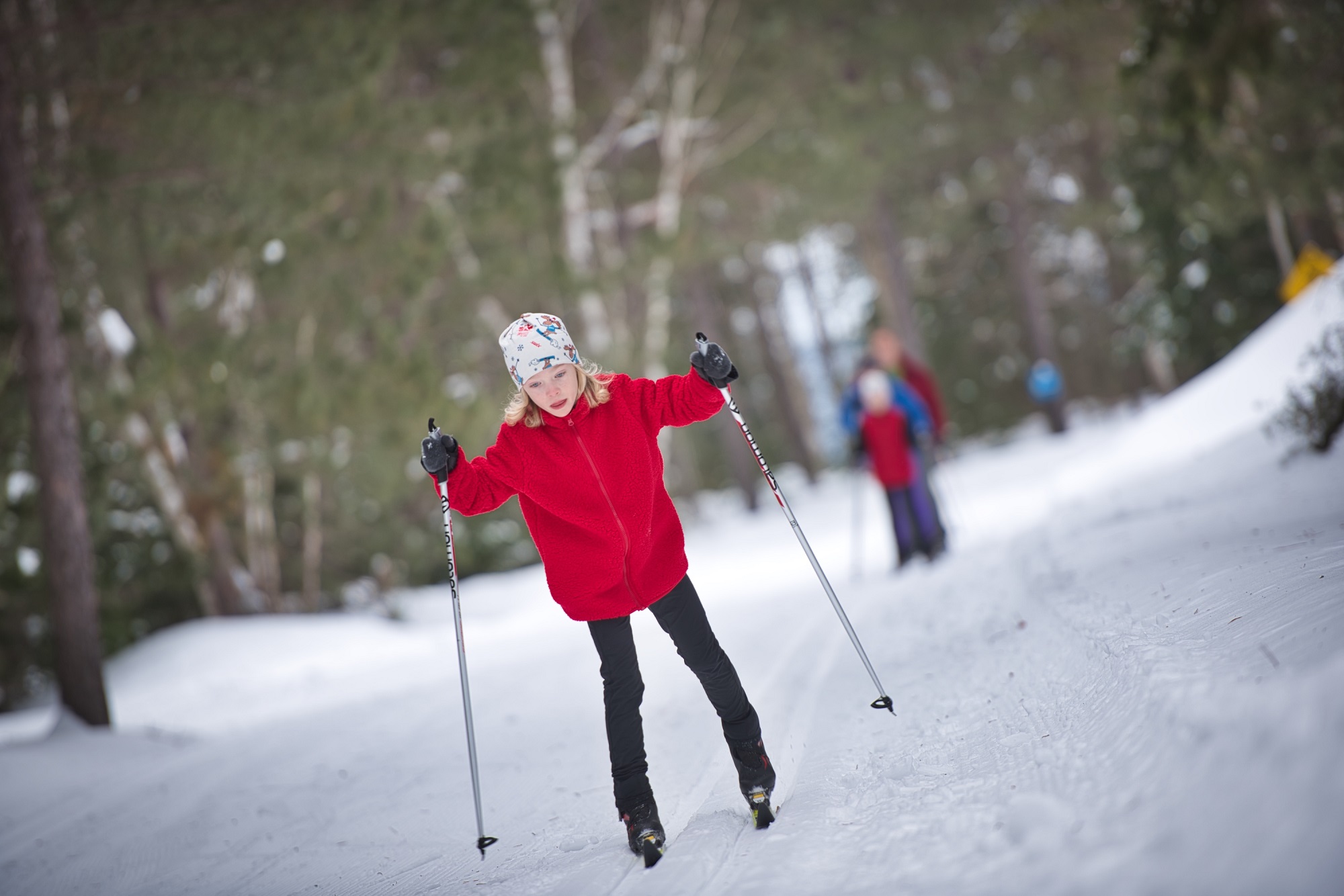Park Information Specialist Jill Legault at Quetico Provincial Park recently took up skijoring. In today’s post, she shares her best advice for getting started with your pup.
If you love skiing and have a dog, skijoring can be a blast!
It’s a fun winter sport where skiers are pulled by dogs or horses. In this case, we’re talking dogs!
Before you “hike up,” here are answers to some of your most frequently asked questions about this fun winter activity:
Can any dog skijor?
Ideally, your dog should be at least 30 lb.
If it’s smaller, you can still ski together, but you really must ask yourself if they’re strong enough to be pulling you.
Our veterinarian told us to wait until our dog was 18-months-old to ensure they were fully grown.
Do I need to be an experienced skier?
Yes!
Moving along at fast speeds while a dog is pulling you is not the time to be learning to ski.
Your dog needs to be able to trust you to:
- not run them over on a downhill
- side-step if they take a corner a little tight
- handle your sharp poles safely
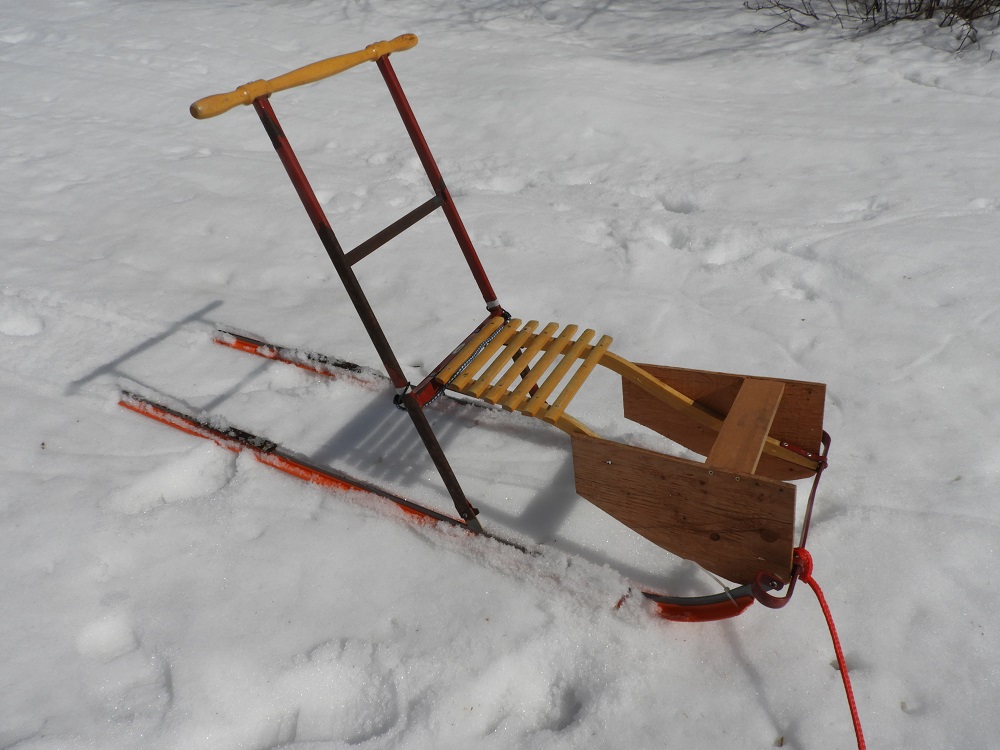
If you’re not a skier, you could have your dog pull you on a kick sled.
What kind of skis should I wear?
Wear the skis you’re most comfortable with. Both classic and skate skis work well.
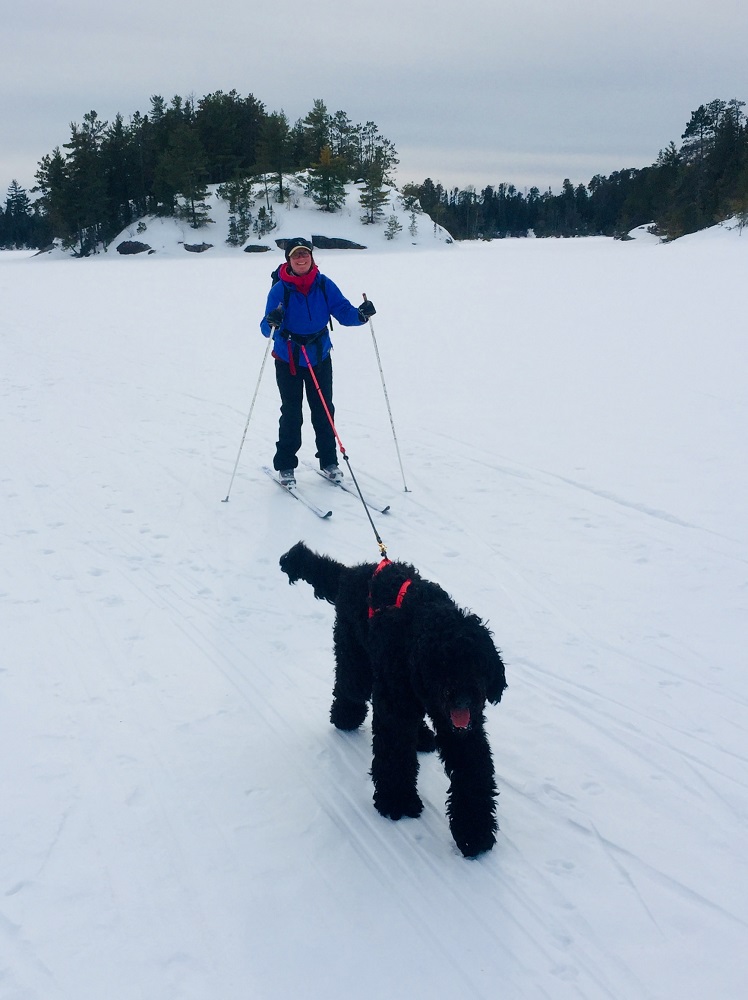
What extra equipment do I need?
Getting a properly fitted dog harness is essential; there are lots of options. Your dog should NOT be pulling you by their collar.
Your setup needs to have a quick release for safety.
The human hip belt and line can be purchased or made yourself.
Lots of people DIY with a rock-climbing harness, bungee cord, and rope. A quick search online will reveal lots of options!
Where can I ski?
You can find a list of Ontario Parks with ski trails on the Ontario Parks winter page, but you should always check with the park that skijoring is allowed.
Here at Quetico, dogs are allowed on all ski trails, but that’s not always the case.
Be sure to check what’s available at each park before you go.
Is there any training I can do at home?
The lack of eye contact with your dog can make your initial skijor training difficult.
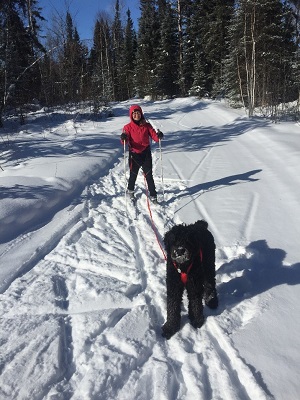
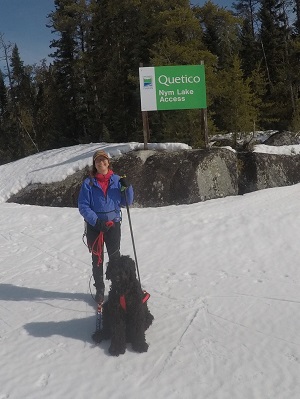
One of the new skills we worked on at home was “line out.”
This is where the dog stands in front of you, with line taut, but does not start pulling. It’s important both for checking for equipment tangles and to minimize jerking by your dog at the start.
We practiced the command by attaching the line to our fence at home.
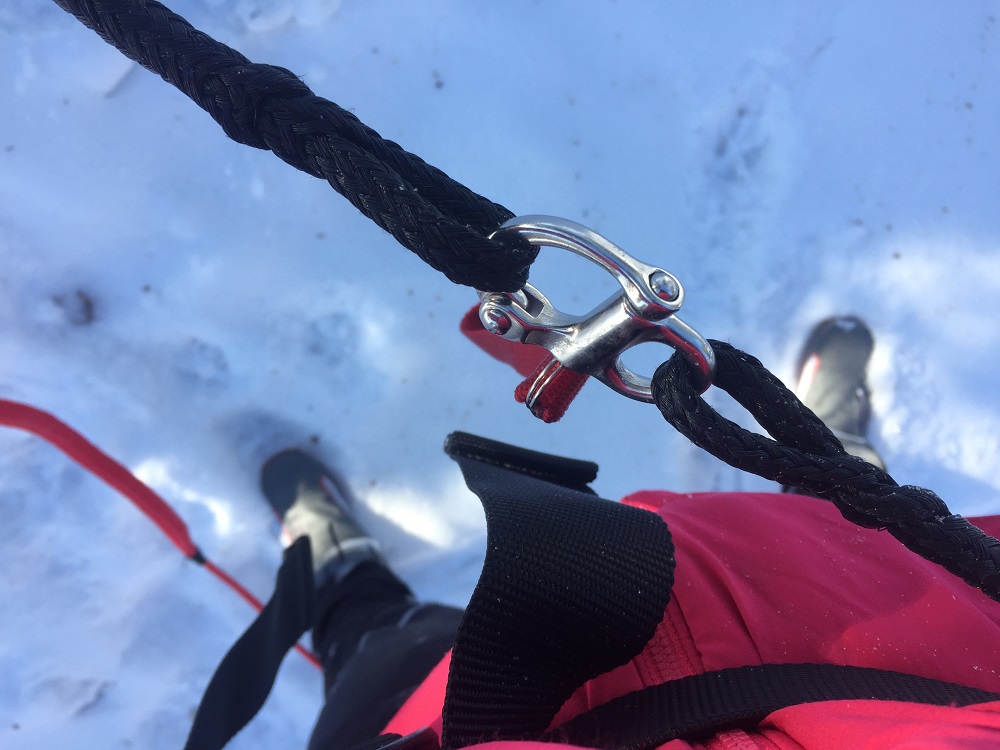
Your dog should also be socialized before you head to public trails. You don’t want them to get distracted by other skiers or wildlife!
The command “on by,” meaning to ignore and go by something, can be trained while walking or running with your dog.
How do I get them to pull?
There are probably more dog training methods than there are breeds of dogs, but here’s what worked for us: we started with chasing an encouraging “Bunny” (human) out-front, then phased out the bunny.
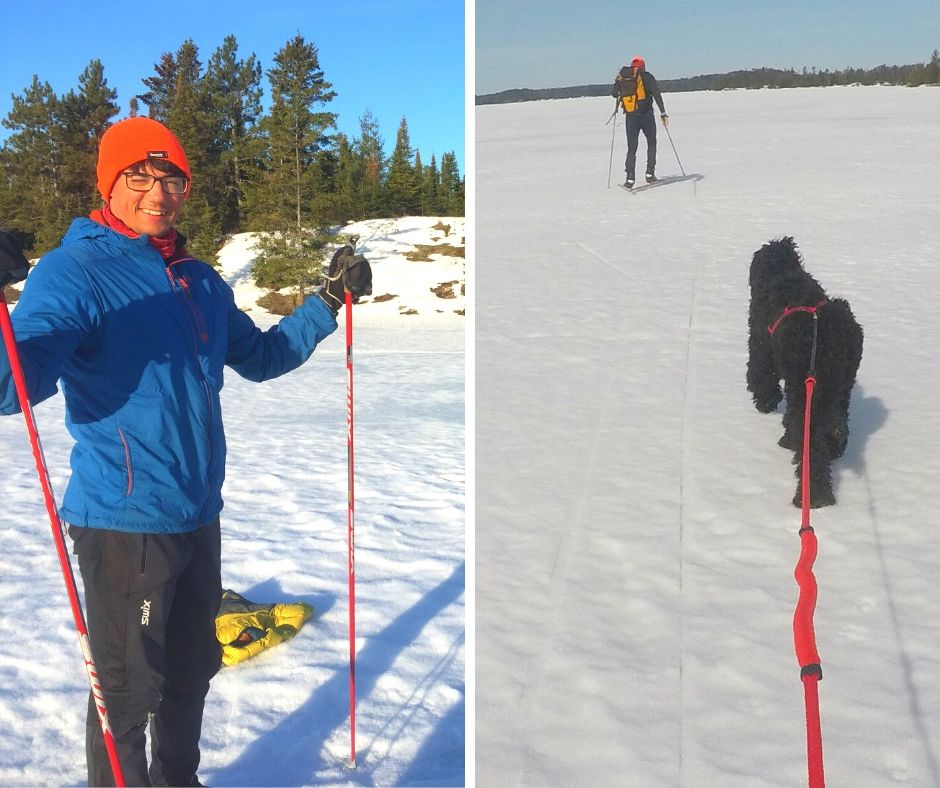
We also went with another dog who already knew how to skijor. This was wonderfully helpful.
What distance should we start with?
It depends on both you and your dog’s fitness. If you have an inactive or overweight dog, you do not want to risk injury by pushing them too far or too fast.
You should also be aware of your dog’s paws and let their pads slowly “toughen-up” to frozen winter trails.
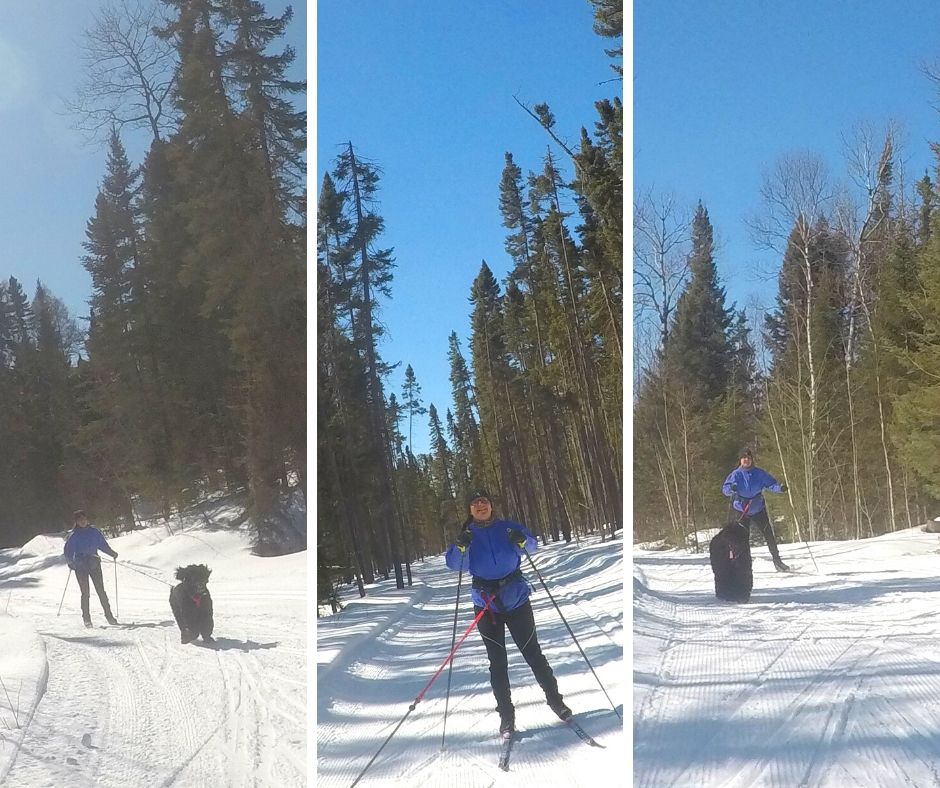
Ultimately, you want your dog to have fun the whole time, so gradually work up to longer skijors.
Remember to keep it safe and paw-sitive!
Dress for the weather, pack what you need for a safe winter adventure, and be off the trails well before dark.
Happy trails!

